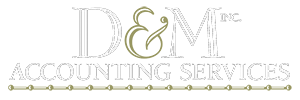The federal tax law has many requirements and benefits for every type of business out there. These laws vary depending on your business’s legal structure, and the following info will help you determine what you’re eligible for.
The following business structure descriptions from www.irs.gov will help you determine which forms you’re responsible to fill out:
- Sole Proprietorship: this is the simplest business structure, which is not a legal entity. This simply refers to the person who owns the business and is responsible for its debts.
- Partnership: this entity does not pay income tax. Instead, all the profits and losses “pass-through” to the partners, who then pay individual taxes.
- C Corporation: these have the same deductions as a sole proprietorship, but they can also take some “special deductions”. A C-Corp is seen as its own taxpaying entity, so it conducts business, has net income or loss, pays taxes, and distributes profits to shareholders. Profit is then taxed to the entity, and taxed to shareholders with its distributed dividends.
- S Corporation: these can pass income, losses, deductions, and credits onto its shareholders as another “pass-through” entity, to avoid the double-tax that occurs with C Corps. To qualify for this status, your company must meet a few requirements.
- Limited Liability Company (LLC): each state has differing regulations for this type of entity. Owners are called “members” and these can be individuals, or other entities, and even foreign entities. This can be treated as a corporation, partnership, or part of the owner’s own tax return.
Business Credits
There are a range of tax credits available which change over time, to encourage the development of certain types of businesses. Currently these range from basic investment, economic development, alternative fuel research, low-income housing, alternative fuel vehicles, railroad track maintenance, and many more. Call your accountant to easily keep up with changes.
Small Businesses and Self Employed
Deductions
To deduct something for your small business, it must be considered “ordinary and necessary” for your specific industry. However, these expenses should be separated from:
- Cost of goods sold: ie. the cost of products or raw materials, including freight, storage, direct labor costs (employees), and factory overhead
- Capital expenses: business start-up costs, assets, and business improvements.
- Personal expenses: anything partially used for the business can be written off to that partial amount (home office portion of your home, mileage of your car used for business, etc)
You may also deduct things like employee pay, retirement plans, rent costs, business loan interest, certain taxes that are attributable to your business as business expenses, and insurance that is again “ordinary and necessary”.
For the self employed, you may deduct the employer-equivalent portion of the self-employment tax (ie. social security/medicare). Also, thanks to the Small Business Jobs Act, you may deduct the cost of health insurance too.
Employment Taxes
First you must decide whether you’re going to hire independent contractors or employees. Do your numbers and decide which makes the most sense for your small business.
There are employment tax due dates which need to be met to avoid penalties. The employment taxes that small businesses must be aware of for withholding include:
- Federal income tax: calculate how much to withhold from each employee. These withholdings must be deposited and reported in the proper way, depending on the amount withheld and the industry your business is in.
- Social Security/Medicare: (and the more recent additional medicare of 0.9%).
- Self employment tax: This is essentially the same as the rate which is withheld from the pay of employees, plus the rate employers play, which adds to 15.3%: 12.4% for Social Security and 2.9% for Medicare.
- Federal unemployment tax: no employee withholdings here; these must come solely from the employer’s funds.
Large and Mid-Sized Businesses
Large businesses that file 250+ returns per year and that have $10 million + worth of assets, are required to file electronically with forms 1120, 1120S, and 1120-F. There is a waiver you may request though if doing this is not possible.
Contact D&M Accounting if you have questions about your business’s taxes or payroll processing! We’re always here to help.
Click here for more information about e-filing and learn more about business taxes here: https://www.irs.gov/businesses

